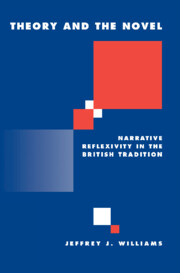4 - Narrative calling
(Heart of Darkness and Lord Jim)
Published online by Cambridge University Press: 22 September 2009
Summary
Exemplary narrative
Heart of Darkness and Lord Jim stand as exemplary texts on the current critical scene, engendering a plethora of commentary and registering the tension between the political reading of narrative and the literary – the formal, generic, and literary historical – reading of narrative. Both novels conspicuously depict the ports and signposts of the British empire, the courses of their plots mapped over its expanse. Thus they present relatively straight imperial representations of the topography, reach, and effect of the empire, at least from the standpoint of the West, and in contemporary criticism become exemplary registers of the imperial moment – which is, as Ernest Mandel and Fredric Jameson following him define it, the second stage of modern capitalism – spurring debates whether they oppose or are complicit in the evils of empire. Much of the reception before the 1970s, while focusing on issues such as how Jim is a flawed hero or the motif of spiritual descent in Heart of Darkness, peripherally finds Conrad to be a critic of empire, citing his obvious ambivalence in scenes such as the Africans' dying or the ship firing blindly into the landscape in Heart of Darkness, conscripting both texts as liberal cautions to the absurdity of the imperial venture. Chinua Achebe's influential “An Image of Africa: Racism in Conrad's Heart of Darkness” dispels this recuperative version of Conrad's politics, noting Conrad's unmitigatedly racist depiction of black “savages,” finding that this racism underwrites Western imperialism.
- Type
- Chapter
- Information
- Theory and the NovelNarrative Reflexivity in the British Tradition, pp. 146 - 183Publisher: Cambridge University PressPrint publication year: 1998

